Text


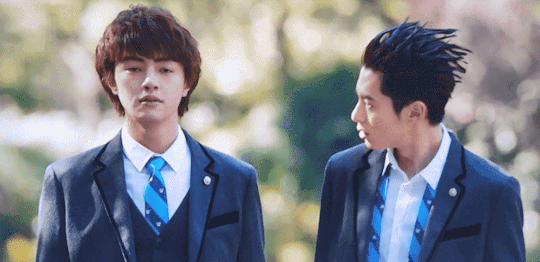


MADE IN CHINA/TAIWAN
DYLAN WANG
DARREN CHEN
CEASAR WU
LEON LEONG
#MADE IN CHINA#MADE IN TAIWAN#CHINESE ACTORS#TAIWANESE ACTOR#METEOR GARDEN (2018)#F4#DAOMING SI#HAUZE LEI#XIMEN YAN#FENG MEIZUO#ALL ACTORS ARE CHINESE WHILE DARREN IS TAIWANESE#CHINA#My GIFS#MYGIFSET#MY-GIF-EDIT
5 notes
·
View notes
Text
I was really fascinated by how Mo Yan’s Life and Death are Wearing Me Out takes the Buddhist concept of stubborn attachment to things keeping one in a cycle of suffering, by actually using a plot device of Buddhist afterlives and reincarnation, and does something of a (in TvTropes style-terms) deconstruction and then reconstruction of the concept, first showing how stubbornness can be virtue and even a heroic or redeeming quality in a world where it is easier to accept cruel changes for one’s own greed and benefit, and adaptability can be cowardice, but showing in the end how it cannot be the ultimate solution and the Buddhist view has wisdom after all.
The beginning of this book plays on the typical trope of a wealthy, grouchy, unlikeable type of person reincarnating into an animal (in this case, multiple animals in a row) as a punishment and being forced to learn humility. Except while Ximen Nao is certainly proud, judgmental and spiteful of his enemies and fits into the archetype in a lot of ways, his reasoning for continuing to declare his innocence even under torture by lord Yama is far more sympathetic than is typical for that archetype.. It is a protest of the inexplicable, monstrous injustices of earth being seemingly repeated in the afterlife, by beings of supposed justice. However likable or not he seems as a person, his point that he did his best to not take advantage of his prosperity to harm others and even went out of his way to help the less fortunate, yet is still executed on trumped-up charges and thrown in the box of other more tyrannical people in his position for being a landlord, is a strong one. Yama can claim to be detached from the earth’s justice, but the very act of trying to teach people to eradicate stubbornness and accept change without attachment would seem to encourage those unfortunate enough to be victims of the earth’s justice systems to accept being trod upon and groundlessly declared guilty; in effect, such a system appears to just be a patsy for whatever the earthly systems of the time are.
So throughout his first two animal lifetimes, Ximen Nao starts by refusing the drink that will make him forget his struggles, so he can stubbornly maintain his human memories and resentments, and struggles between his human mind bitterness about being forced to be an undignified animal and the animal mind and qualities he takes on, which are more happy and accepting of the life he leads. And he finds a partner in his resistance to the changing times, Lan Lian, who he serves loyally both as a donkey and as an ox. Lan Lian fights hard to be the only independent farmer in China, despite opposition, and this is where the antithesis of the Buddhist idea, the nobility of stubbornness, becomes clear. If Ximen Nao bewailed his execution and his loss of wealth and status that came with reincarnation, but then easily adapted to doing whatever he could to have as much pleasure and wealth (metaphorically, if we are talking about him as an animal) as he could in a new life in China’s new system, then it would only be his personal, self-serving loss that he complained about and there would be no nobility in it. But by stubbornly taking a stand, even enduring horrible torture to do so, instead of taking the first opportunity to rebuild his own happiness, it shows his objection is based on a greater principle, and this lends at least the appearance of virtue to his actions. And this thread climaxes at the end of Ximen Nao’s second life as an ox, where his loyalty to Lan Lian and refusal to work for the commune to the point of a horrific death makes him be seen by the people of his village as a sort of Buddhist folk hero. The paradigm the book started out with, of reincarnation to learn to adapt and not be attached, is inverted, and stubbornness is seen as the Buddhist ideal.
This theme is seen not just in Ximen Nao and Lan Lian, but in other characters who similarly stick to their ideals even at the cost of personal loss. Hong Taiyue, in being a true believer in communism not just when it gives him power and allows him to lord over and punish others but when he sees the world giving lipservice to his ideas while following capitalism and forgetting what they once believed in, is possessed of a certain virtue that Jinlong, who equally uses communism as an excuse for cruelty but takes the “easy route” of betraying his father to rise in the ranks and adapts with the time to capitalism when this allows him to remain wealthy and politically powerful, does not. With regards to Lan Jiefang, we have the author inserting himself into the book as the perpetual gadfly Mo Yan explicitly stating the paradox of stubbornness – abandoning his family for an affair with a much younger woman is undoubtably cruel, but in being completely stubborn about it and willing to sacrifice everything he has – a home, prestige, the love of his family – for it, he also proves to be not just a common person “trading up” for a younger, prettier woman for personal gain, and by showing he values a principle more than personal gain he becomes, in the fictional Mo Yan’s semi-ironic view, a hero.
Another thing I think is interesting in the narrative framing’s handling of stubborn characters is that it never resorts to telegraphing a stubborn character’s righteousness by giving them an air of enhanced dignity even when the world judges them, with those who threaten them getting a “pie in the face” by the narrative even as they maintain their worldly power. No, to be stubborn is to invite the ridicule of not just earthly powers but of a universe that demands adaptability, regardless of what your cause is. Even if, like Lan Lian, in the future your endurance will survive and prove those who tormented you wrong, in the long time before that your suffering will not be noble and tragic but pathetic and darkly comical, like in the scene where he gets red paint in his eyes. Hong Taiyue, Lan Jiefang, Ximen Nao in his dealings with the afterlife, all get to fall flat on their faces for their attempts to resist. (Even the author inserting himself into the story not only gets humiliated constantly by the narrative, but gets just about the worst humiliation of everyone).
In the second half of the book, Lan Lian and Ximen Nao are set up as mirrors of each other, two beings who started in the same place with the same goals but must take different paths. Because Ximen Ox sacrifices his life in a display of unyielding courage, and is praised as a Buddhist model for it, and then… life still goes on. Due to the cycle of reincarnation there is no climactic apotheosis of nobility that ends everything, and it is impossible to remain in his stubbornness forever. Lan Lian goes on with his determination, Ximen Nao must adapt to his new life as a pig. And in the short term, this is a form of corruption; when Pig Sixteen can no longer bear to starve himself in protest and allows himself to just live and enjoy life as is natural for a pig, abandoning his human judgment of it being humiliating, he grows crude and greedy. He does not just eat, he pushes aside his siblings and leaves them to starve, and mutilates his mother by the fervor of his suckling. He takes everything from Diao Xiaosan and leads to the rival pig’s downfall due to his desire for a harem. In eating and fattening up, he is considered a revolutionary pig, by being an emblem of the success of farming he is a “cannon launched into the reactionaries”, even as ironically his harem is compared by the narrative to that of an emperor. This makes it clear that whoever is in power, the ideal person (or pig) in their society is someone who is greedy for more and, should their victory be thwarted, adapts to the new system and seeks physical success and pleasure within it rather than stubbornly resenting what they have lost and taking a principled stand.
But in the last sections of the book, it becomes clear that Ximen Nao’s spiritual fulfillment does not depend on remembering his stubborn values again at all. Without reverting to that state, in fact while becoming even more adaptable and fully embracing his life as a pig, he feels regret for his treatment of Diao Xiaosan and grows to love and respect him, and he ultimately dies to save children, even those he had no connection to in his human life, feeling nothing but warmth and happiness about how his life ended. And this is where the ultimate vision of the book becomes clear. For while it is true that if one is of the temperament to value storing up physical goods most in life, reacting to losing those goods unjustly by fighting for the principle that it was unjust is more noble and heroic than taking the cowardly route of abandoning principle to continue to flourish, why should one assume that this temperament is the best way to live life in the first place?
The alternative to both stubbornness and greed that the book proposes can be described as something like melancholy. It’s a perspective that first comes to Ximen Nao during their time of starvation in the winter as a pig, one he admits is unfamiliar to him until that moment because he is “not a melancholy pig” – a perspective where one’s appreciation of life is more complex than just feeling gratified when you get money or food or a harem and feeling bitter and resentful when you do not, where even sadness and loss has its value. And it’s one that reaches its climax during the scene near the end where, as a dog, he sits by the graves of all of his previous lives and feels a bittersweet sadness, mixed with love and acceptance, over his old memories, showing how much he has changed. And it is shortly after that where Yama, acknowledging he has let go of his hate, allows him to once again be reborn as a human. In the end, the vision of stubbornness in this book is that of a “local maximum” so to speak, a mode of existence that is the best, most heroic representation of a blunt mindset without melancholy, but one that must eventually be escaped for true enlightenment, because that mindset as a whole must be escaped. The only way out is through, then, through greed and cruelty and into something better.
9 notes
·
View notes
Text
Journey to the West - Red Boy Demon's Child (2021) 西游记红孩儿
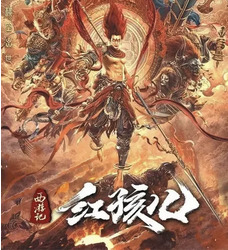


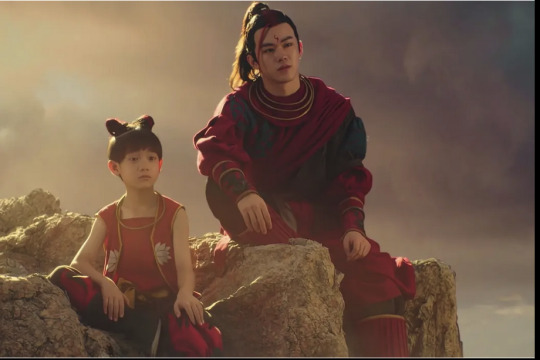
Director: Xiong Chen Screenwriter: Liu Youyou / Da Qin / Qu Mengliu / Liao Yi Starring: Xu Dongdong / Ji Hao / Xu Shaoxiong / Ximen Piaopiao / Li Yan / Wu Xiaolong / Zhuang Qiqian / Xu Huan Genre: Comedy / Fantasy Country/Region of Production: Mainland China Language: Mandarin Chinese Date: 2021-10-20 (Mainland China Internet) Duration: 73 minutes Type: Retelling
Summary:
Five hundred years ago, the demon monkey Sun Wukong caused havoc in the Heavenly Palace and accidentally kicked over the Eight Trigrams furnace, causing heavenly fire to come to the world. In order to save the common people, Princess Iron Fan tried her best to suppress the Heavenly Fire, but the baby in her belly was eroded by the Samadhi True Fire of the Eight Trigrams Furnace and became a devil boy.
On the occasion of Iron Fan's Millennium Birthday Party, Red Boy has been looking for treasures in the world for his mother. After hearing that the scripture-seeking team was passing by, he was encouraged by Azure Wolf Demon to rob Tang Monk. Just as Red Boy and Sun Wukong were fighting, the Azure Wolf Demon designed to trap the two in the Eight Trigrams Furnace. It turned out that the Azure Wolf Demon's family died in the sky fire when he was young, so he was waiting for an opportunity to take revenge on Sun Wukong.
What is unexpected is that the Azure Wolf Demon's plan caused the people of Huoyun Village to encounter mountain fires again and put them in danger. Red Boy becomes a demon and transforms into a flaming giant. Princess Iron Fan tells the truth and uses her last magic power to save the common people. She takes out a drop of nectar given by the Bodhisattva Guanyin. At this time, Sun Wukong suddenly realizes the Dharma and understands the cause and effect of karma. The source of everything lies in himself, he decides Self-sacrifice and walk towards the Fire Giant with the nectar.
Source: https://mov-20.chinesemov.com/2021/Journey-to-the-West-Red-Boy
Link: https://www.nunuyy2.org/dianying/92120.html
#Journey to the West - Red Boy Demon's Child#西游记红孩儿#jttw media#jttw movie#movie#live action#retelling#rewrite#Red Boy#Princess Iron Fan#Ximen Piaopiao#Zhu Bajie#Gray Wolf Demon#Tang Seng#Tripitaka Monk#Sha Wujing#Sun Wukong#Monkey King#Bull Demon King#Spider Demon#tang sanzang
18 notes
·
View notes
Text
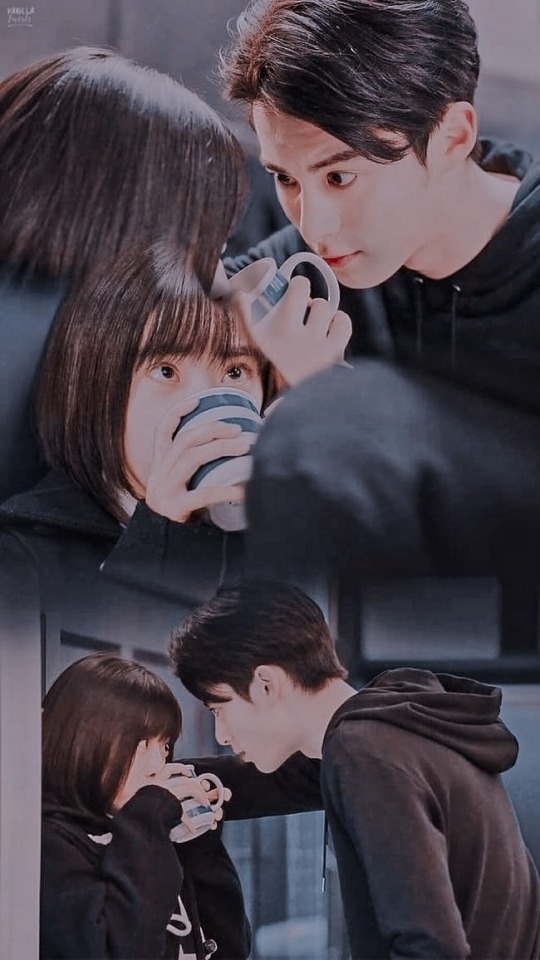

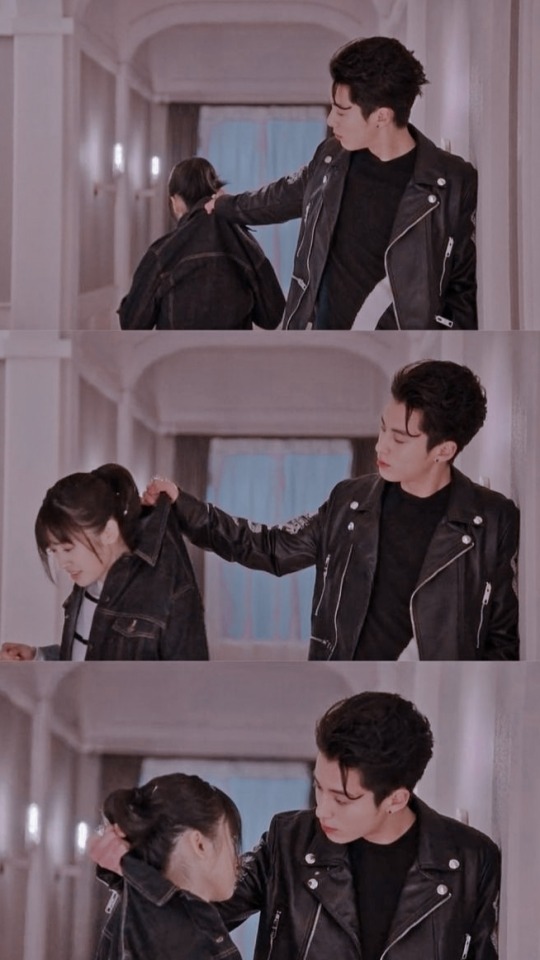

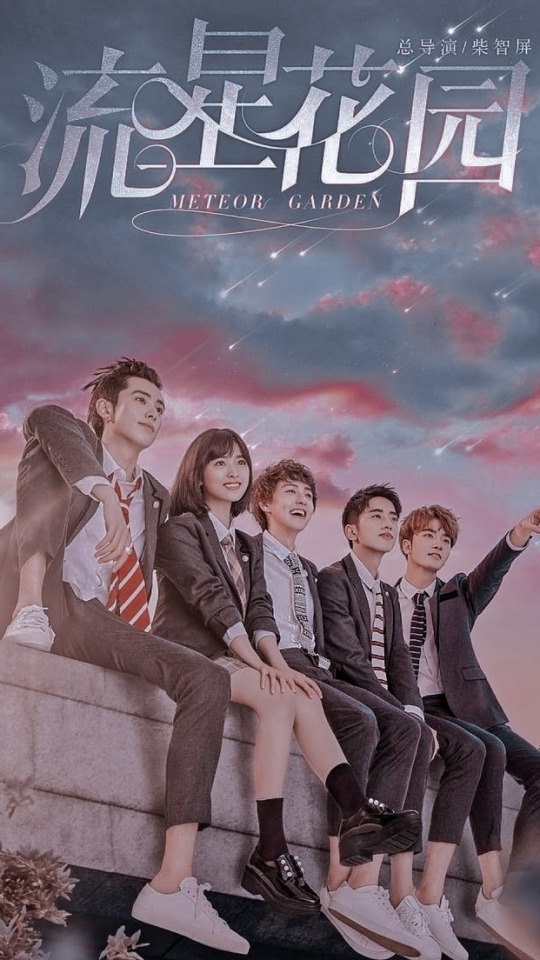


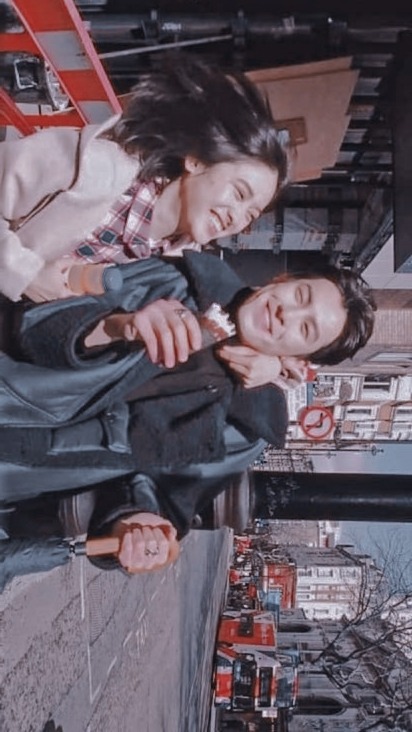
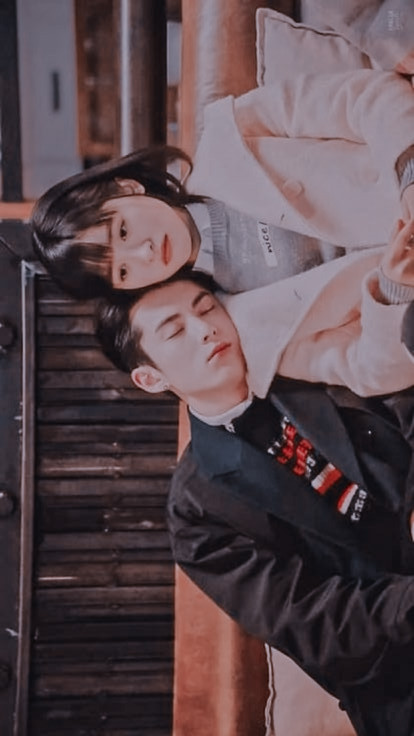
meteor garden wallpapers !
- [ requested ]
please like or reblog if you save
#meteor garder#meteor garden wallpapers#meteor garden 2018#shen yue#dylan wang#darren chen#caesar wu#connor leong#dao ming si#dong shancai#huaze lei#ximen yan#feng meizuo#cdrama#chinese drama#cdrama wallpapers
125 notes
·
View notes
Text
Not to be literally every basic bitch in an Asian Drama but like me too.
Like it always seemed over hyped that all these girls would flock to the boys, ask for pictures and fawn over them and shit. But I get it now.
F4 shows up on screen:
Me immediately: 😳🥵😩👀👅🔥😍🥰
#yes this is another post about meteor garden#no i will not apologize#I'm three years late and obsessed#dylan wang#darren chen#caesar wu#connor leong#F4#meteor garden#hua ze lei#dao ming si#ximen yan#feng meizuo#theyre fucking dorks#and i love them
46 notes
·
View notes
Text










Wu Xize Caesar Wu for Hunan TV's End of Year Concert
(December 2020)
©️ tto
#caesar wu#wu xi ze#Wu Xize#吴希泽#Ng Hei Jaak#meteor garden#ximen yan#xi men Yan#the Chang’an Youth#Yang Zian#Yang Zi An#general’s lady#Chu xiuming#chu xiu Ming#Yi Piang Bing Xin Zai Yu Hu#a piece of ice in the jade pot#ice heart in jade pot#Zhan Zhao#cdrama#c drama#chinese drama#chinese actor
90 notes
·
View notes
Photo









Huaze Lei from Meteor Garden (2018) is a canonically autistic pansexual autigender nanoboy who uses he/him, they/them, and fo/four pronouns, and he’s in a QPR with Daoming Si, a heteroflexible overmasc redgender man with ADHD who uses he/him and fo/four pronouns, Ximen Yan, an abroromantic aceflux agenderflux person with ADHD who uses they/them and fo/four pronouns, and Feng Meizuo, a bisexual gender-questioning person who uses he/him and fo/four pronouns! They all use fo/four to show their friendship!
#huaze lei#meteor garden#autism#pansexual#autigender#nanoboy#queerplatonic#q power#daoming si#heteroflexible#overmasc#redgender#adhd#ximen yan#abroromantic#aceflux#agenderflux#feng meizuo#bisexual#questioning#gender questioning#mogai headcanon
52 notes
·
View notes
Text
f4 - mtl to wake you up for sex
MOST
ximen
si
meizuo
lei
LEAST
ximen and si — these two are so confident. they will not shy away from telling you if they’re horny or not, if they wanted to, they would say it in a loud ass tone that would probably wake you up. okay, maybe over-exaggerating just a bit but they will wake you up as carefully as possible. in this scenario, it’s either you two fuck or they take care of it themselves. you have to give a straightforward answer (mainly to si) but they probably wouldn’t take “maybe” for an answer if you’re being a tease. if you become needy too and you tease them, they are just gonna leave you high and dry. would they do foreplay? depends how needy they are, they might just rush into fucking you. who knows? these two are slightly unpredictable. also they will probably go rough on you, unless it was something you didn’t want. ++ a bit of a bonus, si would be a little bit shy at first if it’s his first time waking you up for sex, like he doesn’t know how to approach it to you but as soon as you guys get the hang of doing it, he won’t be as shy.
meizuo, lei — okay finally we are onto the boys who actually care whether you get sleep or not. you may actually have to be the one to ask if they want to do it or not because these two wouldn’t want to wake you up from your beauty sleep. they might go into the bathroom or take care of it right next to you. (i can see lei doing this the most and i’m freaking out over it??????) they would probably fail taking care of it right next to you because they are really vocal so one loud moan and now you’re awake. they will, of course, be apologetic about it if you get grumpy but they will make it up to you. these two will go soft and slow since it’s most likely late at night and they dont want things to go too fast. i can see these two going to sleep immediately afterwards because they are now all of a sudden tired.
send me requests!!
#daoming si#f4#huaze lei#ximen yan#fang meizuo#connor leong#darren chen#ceaser wu#dylan wang#smut#meteorgardensmut
86 notes
·
View notes
Photo
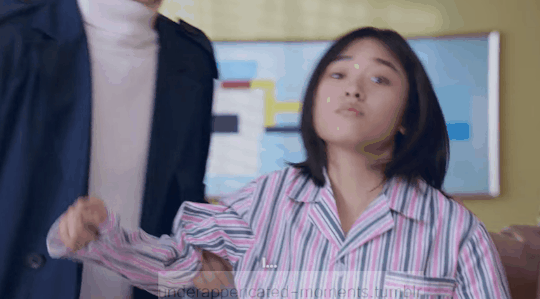






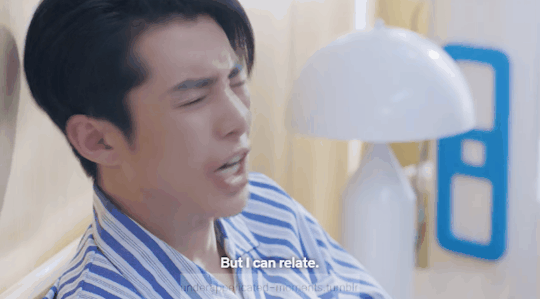
"A dog?!" - 𝔼𝕡𝕚𝕤𝕠𝕕𝕖 𝟙𝟠
It’s lei giggling for me
-------------------------------------
Please keep credits x
#meteor garden#boys over flowers#Chinese Drama#c drama#2018#dylan wang#dao ming si#shen yue#dong shancai#darren chen#Huaze Lei#ceaser wu#XIMEN YAN#connor leong#FENG MEIZUO#f4#flower 4#dog
120 notes
·
View notes
Text
Well after reading up on the manga and watching Hana Yori Dango I’d like to thank the Korean Boys Over Flowers and Meteor Garden 2018 for developing my favorite romance beyond its original parameters.
#it’s my favorite in#boys over flowers#and it’s a love. in#meteor garden 2018#and. it like was barely there#in Hana Yori Dango 😂🧐#so besides a few other reasons#that one will not be. a favorite#so yi jung#chu ga Eul#ximen yan#Jiang Xiaoyou#my jdrama rambles#my kdrama rambles#my CDrama rambles
38 notes
·
View notes
Text










Meteor Garden Episode 2
#meteor garden#daoming si#dong shancai#huaze lei#feng meizuo#connor leong#caesar wu#shen yue#dylan wang#chinese drama#chinese actors#c drama#chinese university#university#shangai#nutricion#ximen yan#f4#best bromance#bromance#darren chen#sun yihan#teng tang jing#episode 2#meteor garden episode 2
70 notes
·
View notes
Photo









Avatars 200x320, Caesar Wu
64 notes
·
View notes
Photo




#meteor garden#meteor garden 2018#F4#chibi#boys over flowers#hana yori dango#dao ming si#Yan Ximen#Ximen Yan#hauze Lei#feng mei zuo#dong shancai#道明寺#董杉菜#花泽类#冯美作#西门彦#花より男子#流星花园
86 notes
·
View notes
Text

#caesar#caesar wu#meteor garden#yan ximen#ximen yan#the only boy that matters#i would give my life for ximen#f4
39 notes
·
View notes
Photo




𝓜𝓮𝓽𝓮𝓸𝓻 𝓖𝓪𝓻𝓭𝓮𝓷 (2018): 𝓲𝓬𝓸𝓷𝓼 - 𝓨𝓪𝓷 𝓧𝓲𝓶𝓮𝓷 & 𝓕𝓮𝓷𝓰 𝓜𝓮𝓲𝔃𝓾𝓸
#流星花园#meteor garden#Liu xing hua yuan#Liúxīng Huāyuán#Lin Helong#冯美作#Feng Mei Zuo#Connor Leong#Caesar Wu#Ximen Yan#西门彦#meteor garden icons#icons#Hana Yori Dango#F4#drama#Chinese Drama#花より男子
36 notes
·
View notes
